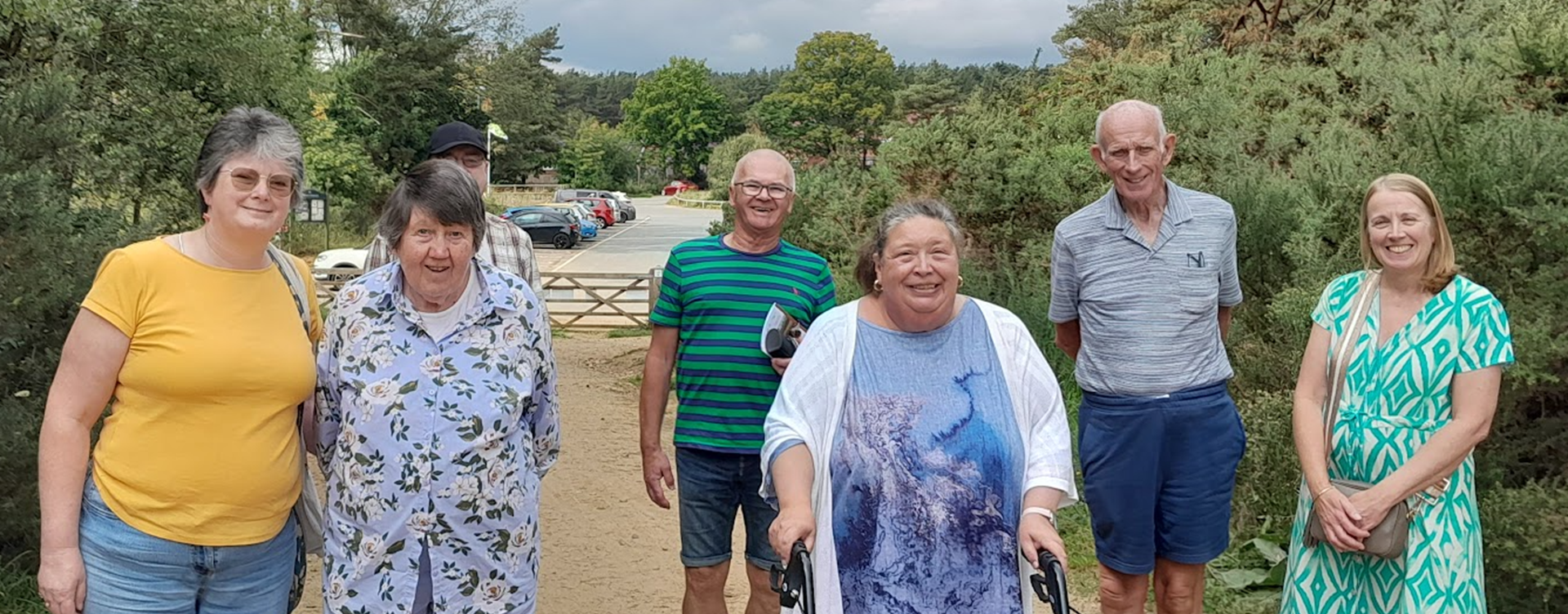Empowering Independence: How Homecare Services Aid Stroke Survivors in their Recovery
Published: 11/09/2023
A stroke can be a life-altering event, affecting not only physical health but also one's ability to perform daily tasks and maintain independence. Stroke survivors often face a long and challenging road to recovery, but with the right support and care, they can regain their autonomy and lead fulfilling lives. Homecare services, such as Right at Home's hospital-to-home rehab service, play a pivotal role in empowering stroke survivors during their rehabilitation journey. In this blog, we will explore how these services aid stroke survivors in their recovery while fostering independence and improving their overall quality of life.
If you would like to talk in more detail about how right at Home GF can support you or a loved one after a stroke then please contact our friendly team.
Understanding the Impact of Stroke
A stroke occurs when there is a disruption in the blood supply to the brain, leading to brain cell damage. The severity and location of the stroke determine the extent of its impact on an individual's life. Common consequences of stroke include weakness or paralysis on one side of the body, impaired mobility, speech difficulties, cognitive challenges, and emotional changes.
For many stroke survivors, regaining independence and returning to their previous level of functioning becomes a top priority. Homecare services, like Right at Home's hospital-to-home rehab service, are designed to assist with this transition and support the recovery process.
Comprehensive Care at Home
Right at Home's hospital-to-home rehab service offers comprehensive care for stroke survivors, enabling them to continue their rehabilitation journey in the comfort of their own homes. This approach focuses on personalized care plans tailored to each individual's needs and goals.
- Physical Rehabilitation:
- Mobility Training: Many stroke survivors experience difficulty with walking and balance. Right at Home's caregivers work with physical therapists to provide mobility training, helping individuals regain strength and coordination.
- Range of Motion Exercises: To prevent muscle stiffness and contractures, caregivers assist with range of motion exercises to maintain joint flexibility.
- Assistive Devices: Right at Home helps individuals become familiar with assistive devices like walkers or wheelchairs, promoting safe and independent mobility.
- Speech and Language Therapy:
- Speech Exercises: Speech therapists work closely with caregivers to implement exercises that help improve speech and language skills for stroke survivors with communication difficulties.
- Swallowing Therapy: Swallowing difficulties, known as dysphagia, are common after stroke. Right at Home caregivers assist individuals with prescribed swallowing exercises and ensure safe eating and drinking practices.
- Cognitive Rehabilitation:
- Memory and Cognitive Exercises: Stroke survivors may experience cognitive challenges, such as memory loss or difficulty with problem-solving. Caregivers provide support and encouragement for memory exercises and cognitive tasks.
- Activities of Daily Living (ADL) Support:
- Personal Care: Homecare services encompass assistance with ADLs like bathing, dressing, grooming, and toileting, helping stroke survivors maintain their dignity and hygiene.
- Emotional Support:
- Mental Health and Well-being: Stroke survivors may face emotional challenges, including depression or anxiety. Caregivers offer emotional support, companionship, and encouragement to maintain a positive outlook.
- Medication Management:
- Medication Administration: Homecare providers assist in medication management, ensuring that stroke survivors take their prescribed medications as directed, which is critical for their recovery.
7. Nutritional Support;
- Meal Planning and Preparation: Proper nutrition is essential for recovery. Caregivers assist with meal planning and preparation to ensure stroke survivors receive a well-balanced diet.
Independence and Quality of Life
Homecare services like Right at Home's hospital-to-home rehab service are designed not only to address the physical and medical needs of stroke survivors but also to empower them to regain independence and improve their overall quality of life. By offering personalized care plans that focus on individual goals and abilities, stroke survivors can work towards achieving greater autonomy in their daily lives.
Recovery from a stroke is often a gradual process, and the support of homecare services is invaluable in making the journey smoother and more successful. Stroke survivors, with the right assistance, can regain their confidence, improve their physical and cognitive abilities, and ultimately enjoy a fulfilling and independent life at home. With the compassionate care provided by services like Right at Home, stroke survivors can look forward to a brighter future and the opportunity to thrive in their familiar surroundings.
If you would like to learn more about how Right at Home's homecare services and how they can help you are a loved one, why not call us on 01252 783426 and speak to one of our care managers? They will be able to answer any questions you might have.
Related articles
How to make independent living work for you
Respite care, what is it and how can it help?

